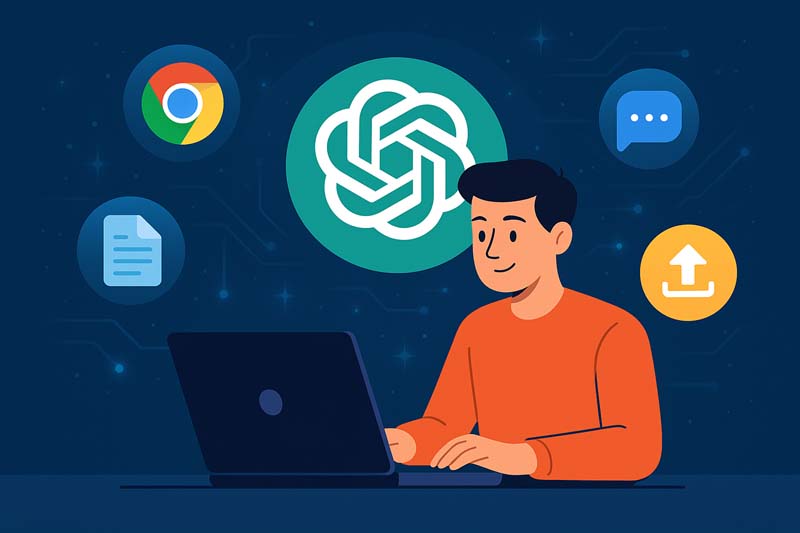Introduction
In today’s fast-paced digital world, artificial intelligence (AI) is making devices smarter and more efficient. One of the most significant advancements in AI is Edge AI. Unlike traditional AI, which relies on cloud computing, Edge AI processes data locally on devices. This reduces latency, enhances privacy, and improves real-time decision-making capabilities. But what exactly is Edge AI, and how is it transforming smart devices? Let’s explore.
What is Edge AI?
Edge AI refers to the deployment of artificial intelligence algorithms directly on edge devices, such as smartphones, IoT gadgets, wearables, and autonomous vehicles. Instead of sending data to centralized cloud servers for processing, Edge AI performs computations locally on the device itself or a nearby edge server.
How Edge AI Works
Edge AI integrates machine learning (ML) models into embedded systems, microprocessors, or specialized AI chips. These models analyze real-time data, allowing devices to make instant decisions without relying on an internet connection.
Key Benefits of Edge AI
1. Low Latency & Real-Time Processing
Since computations happen locally, Edge AI significantly reduces response time, making it ideal for applications requiring instant decision-making, such as self-driving cars and security cameras.
2. Enhanced Privacy & Data Security
Processing data on the device means less exposure to cyber threats. Edge AI minimizes the risk of data breaches by keeping sensitive information localized rather than transmitting it over the internet.
3. Reduced Bandwidth Usage
Traditional cloud-based AI requires a constant data flow, leading to high bandwidth consumption. Edge AI decreases reliance on cloud services, lowering costs and improving efficiency.
4. Improved Reliability
Devices powered by Edge AI continue to function even in low or no internet connectivity environments. Mark from Red Houston SEO says, “This is crucial for industrial automation, healthcare monitoring, and remote sensing applications”.
How Edge AI is Transforming Smart Devices
1. Smartphones & AI Assistants
Edge AI enhances voice recognition, camera optimization, and real-time translations in smartphones. Virtual assistants like Siri and Google Assistant utilize Edge AI to process voice commands instantly without sending data to the cloud.
2. Autonomous Vehicles
Self-driving cars depend on Edge AI to process sensor data in real-time. This allows vehicles to detect obstacles, recognize traffic signals, and make split-second decisions, ensuring passenger safety.
3. Smart Home Devices
Smart home gadgets, such as voice-controlled assistants, security cameras, and IoT appliances, leverage Edge AI for faster response times and enhanced automation.
4. Wearable Technology
Smartwatches and fitness trackers use Edge AI to analyze health data on the device itself. This helps in tracking real-time heart rate, oxygen levels, and sleep patterns without needing an internet connection.
5. Healthcare & Medical Devices
Edge AI enables faster diagnosis and patient monitoring in hospitals. Devices like AI-powered ultrasound machines and portable ECG monitors provide real-time insights without relying on cloud processing.
6. Industrial Automation
Factories use Edge AI to optimize production lines, predict machine failures, and improve safety standards with real-time monitoring systems.
Challenges of Edge AI
While Edge AI offers numerous benefits, it also faces some challenges:
- Limited Computing Power: Edge devices have constrained hardware resources compared to cloud servers.
- Energy Consumption: Running AI models locally can drain battery life in mobile and IoT devices.
- Model Updates: Keeping AI models updated without cloud dependency is complex and requires innovative solutions.
Future of Edge AI
The future of Edge AI is promising, with advancements in AI chips, 5G networks, and decentralized computing. As technology evolves, we can expect:
- More powerful AI-enabled edge devices
- Seamless integration with 5G for ultra-fast data processing
- Greater adoption in smart cities, healthcare, and autonomous industries
Conclusion
Edge AI is a game-changer in the world of smart devices. By bringing AI processing closer to the source of data, it enhances speed, security, and efficiency. From smartphones and wearables to self-driving cars and industrial automation, Edge AI is shaping the future of technology. As innovations continue, the possibilities for Edge AI-powered devices are limitless.



